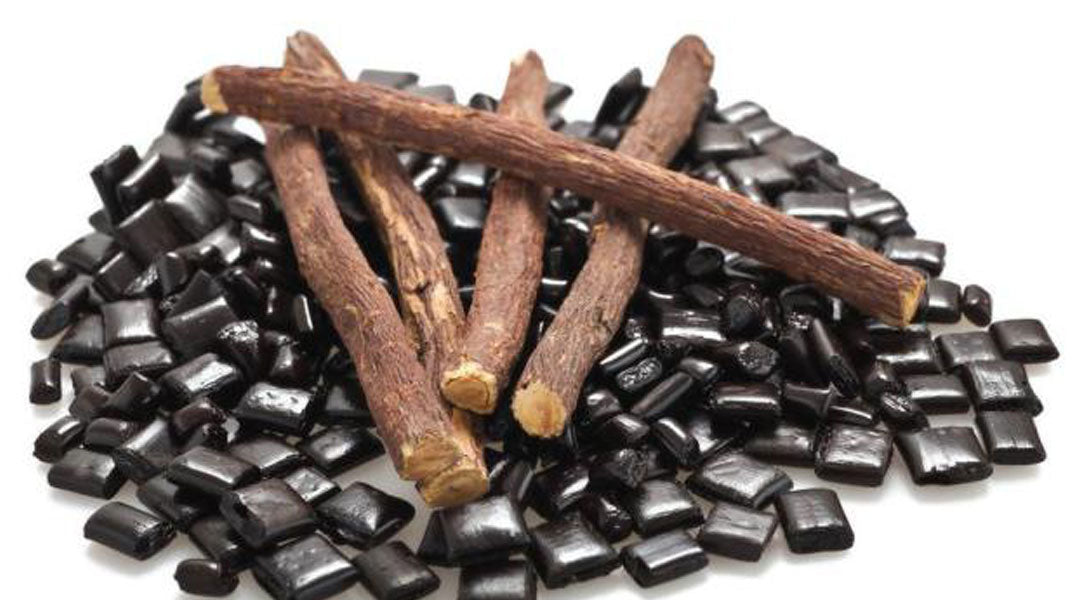Blog
Anti-Inflammatory Skin Care Ingredients
In this post let’s focus on anti-inflammatory skin care ingredients following our last article on skin inflammation, what causes it and how to treat it. If your skin exhibits acne breakouts, redness or other types of discomfort, it’s sending a message that something is irritating it. Whether it’s UV exposure, allergens or something in your skin care regimen that’s throwing things off, the best thing to do is identify and eliminate the offending agent if you can. Decisive action can help to nip things in the bud before setting off an inflammatory cascade that may turn into something longer lasting that will damage skin. Corticosteroids are potent anti-inflammatory skin care ingredients available by prescription that are used to treat eczema and dermatitis. You’ll get fast results but for the most part, you shouldn’t use corticosteroids long term as they can thin skin and dampen the immune system. Lots of non-prescription anti-inflammatory skin care options are available today and they are available in a range of treatments to help all skin types. 7 Anti-Inflammatory Skin Care Ingredients Whether you need to repair or want to lessen the chances of inflammation starting in the first place, here are seven ingredients that should be on your radar: Niacinamide. Niacinamide is one of those under-valued ingredients that does so much for skin. In addition to its inflammation busting properties, it has been shown to stimulate collagen production, prevents moisture loss, increase ceramide (lipid) production and even the skin tone. Find it in our A is for Anti-Aging Serum, where it’s combined with retinaldehyde and a host of other ingredients to help deliver more youthful and vibrant skin. Chamomile. Rich in bisabolol, an anti-irritant that naturally occurs in chamomile, this herb’s healing properties help to soothe redness and rosacea and repair damaged skin. Find it in our A is for Anti-Aging Retinal Serum. Turmeric. This beautiful golden hued spice is gaining lots of attention due to its anti-inflammatory compounds, including curcumin. When ingested orally, the active components in turmeric are useful in managing arthritis. Skin care preparations that include turmeric calm and soothe skin and help to brighten the skin tone. Blue Tansy. The blue colour comes from azulene, which has anti-inflammatory properties and is helpful in battling cystic and hormonal acne. White Willow Bark. Rich in inflammation fighting compounds known as flavonoids, white willow bark has anti-inflammatory and pain relieving abilities comparable to aspirin. It is a useful addition in the battle against acne breakouts. Green Tea. Sipping on a cup of green tea provides instant zen and this vibe transfers over to skin when applied topically. Green tea is a source of epigallocatechin gallate (EGCG), a polyphenol in that delivers both antioxidant and anti-inflammatory skin care properties and is known to protect against UV damage. Find green tea extract in our Bespoke Vitamin C Serum. Licorice. Whether from the root or as an extract, licorice has been used in ancient Chinese medicine to treat inflammation for centuries. This heavy-hitter is a boon to sensitive skin prone to irritation. What are your favourite anti-inflammatory skin care ingredients?
Learn moreUnderstanding Skin Inflammation
Skin inflammation is one of the most common issues experienced when it comes to our body’s largest organ. The condition may be acute (short lived) or chronic (longer lasting). Under ideal circumstances, inflammation is actually a good thing as it’s our built in defense system, designed to protect us from invading bacteria, viruses and injuries. However, left untreated over a long time period, it can cause problems. Shop All Apothekari Acute skin inflammation results from exposure to UV rays, allergens or contact with potentially irritating ingredients like soaps and other topical treatments. Inflamed skin may have a rash, and be itchy and/or red. Symptoms tend to resolve spontaneously within a couple of weeks, especially if the irritant is removed. For the most part, acute conditions leave no serious damage behind. Chronic skin inflammation is often the result of an immune inflammatory response within the skin itself. Presenting as acne, eczema, rosacea, dermatitis and psoriasis, it tends to be longer lasting and may cause significant and sometimes serious tissue damage. Acne is an inflammatory condition, often exacerbated by the presence of bacteria. Finally, rosacea is another skin condition often triggered by inflammation from stress, food or hormones. What Causes Skin Inflammation? Skin inflammation is a complex process and researchers are still trying to understand it in full. In general, a trigger results in the production of inflammatory hormones (like cortisol), which bind to receptors on target cells and stimulate the production of further inflammatory signaling hormones. Lifestyle factors including stress, lack of sleep, poor diet, second hand smoke and sun exposure can all contribute to skin inflammation. Blood vessels may dilate, nerve cells may be activated, and some cells may leave the blood and migrate to the skin, where more inflammatory hormones along with enzymes, free radicals and damaging chemicals are produced. While the response arises as a way to protect the body against a perceived threat from the initial trigger, the end result is a large inflammatory response that can actually cause considerable damage to the skin. Treatment Conventional treatments for chronic inflammation such as eczema and dermatitis often include corticosteroids. While effective in chronic cases, corticosteroids aren’t that great in treating acute inflammation. Managing lifestyle factors – watching what you eat, getting enough sleep and trying to control stress are key. Cortisol, the stress hormone slows wound healing, hastens the breakdown of collagen and can accelerate the aging progress, leaving skin looking saggy, wrinkled and less vibrant. Exercise boosts the release of endorphins, which are anti-inflammatory. Last, sleep gives your skin a chance to heal and repair. It’s not called ‘beauty sleep for nothing! Here are 5 ways you can help fight against skin inflammation: 1. Consume Foods Rich in Anti-inflammatory Compounds This includes foods rich in omega-3 fatty acids (like fish), antioxidant rich berries, nuts and leafy greens. 2. Minimize the Consumption of Junk Food Fast food, refined carbohydrates and sugar contribute to inflammation. Food allergies may also play a factor so if you suspect your diet is the cause try to identify the allergen and eliminate it. It’s definitely worth a try! 3. Be Gentle When it comes to topical treatments, go easy. Opt for gentle cleansers (like Cloud Nine Foaming Cleansing Crème or AHA-Mazing Clean Cleanser). Don’t over exfoliate or combine the use of aggressive products all at once. Space out retinoids, alpha hydroxy acids and low pH Vitamin C. Rethink feeling ‘squeaky clean’, which often results in dry and irritated skin. If skin feels itchy and irritated or appears red, take a product break. 4. Wear Sunscreen Every day. UV rays are a source of free radicals, which can lead to inflammation. 5. Sleep Well. Exercise. Manage Stress. Since stress is one of the main reasons for skin inflammation, stress reduction is key. Exercising and sleeping better are two ways to help manage stress. Whether it’s short-term inflammation (like hives, a rash or sunburn) or the cumulative effect of chronic assaults, inflammation does take a toll on the skin. A weakened skin barrier function can lead to trans-epidermal water loss, leaving skin feeling dry and more sensitive. The earlier you tackle it the better. In our next post, we discuss some of the best anti-inflammatory ingredients you can use to help skin heal. Stay tuned!
Learn more


